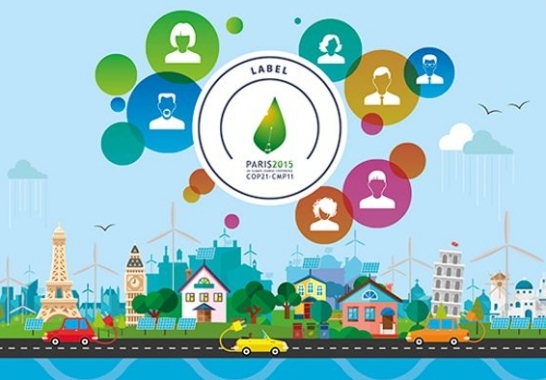Civil society, cities and regions preparing for COP21
A conference on multilateral mobilization for climate action
Brussels, 23 November 2015 | Published in Energy, Social
Housing Europe participated in the "Civil society, cities and regions preparing for the COP21 and beyond" conference in Brussels on 19 November 2015.
The conference was organized by the European Economic and Social Committee (EESC) and the Committee of the Regions (CoR) where participants demonstrated how civil society in European cities and regions can be mobilised for COP21 and concrete climate action. The discussion was initiated around the state of negotiations and the main positions of both institutions:
Karl-Heinz Lambertz, first Vice-President of the CoR highlighted that COP21 is only the starting point and the work continues with concrete actions as the sensitisation of the population to change its everyday life. Gilles Pargneaux stressed the urgency to develop policies based on renewables and the cooperation between EU and Africa.
Claus Kondrup, DG Climate Action of the European Commission put the emphasis on the fact that the Structural Funds target the energy efficiency goal with financial support towards a low-carbon economy. Lutz Ribbe, Member of the EESC presented the details of several programmes, including the IMF programme called ‘Act Local, Solve Global’ which supports energy efficient solutions. The importance of the programme is also that we can combine energy production and regional development. Finally, he stressed the role of the civil society and the local level in the COP21 process:
- Exert public pressure on the negotiator
- Dissemination good practices and specific knowledge
At the event, several wallpapers were showcasing best practices of climate action, an ambitious social housing project was also presented from Northern Ireland. With the framework of this project the region is installing solar panels on 2000 social homes.
Andrew Cooper, Councillor of the Kirkless Council, Member of the Committee of the Regions presents the beneficial impact of solar panels on tenants as the scheme saves nearly the equivalent of two weeks rent on their homes each year in reduced energy costs. The project shows that the solar power is getting more and more competitive and not only addressing climate change but also reducing bills of the very lowest income tenants.
In the concluding remarks, participants supported the CoR opinion that for the global agreement on climate change, local governments must be empowered to act to accelerate national governments efforts in lowering carbon emissions. The climate agreement must clearly refer to the role of cities and regions and provide adequate support, including financing.
Read MoreBackground
What is the EU doing
The EU position in light of COP21 is summed up in the February 25th Commission Communication with the title“The Paris Protocol-a blueprint for tackling global climate change beyond 2020. The Commission proposes, among other things, making the agreements binding, which should then “enter into force as soon as countries with a collective total of 80 % of current global emissions have ratified it”. These agreements should be reviewed every five years, enabling parties to increase their ambitions as and when appropriate.
A negotiating text for the 2015 agreement was agreed upon in Geneva in February 2015.